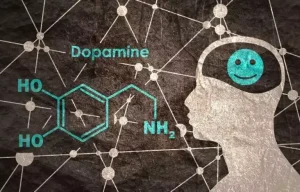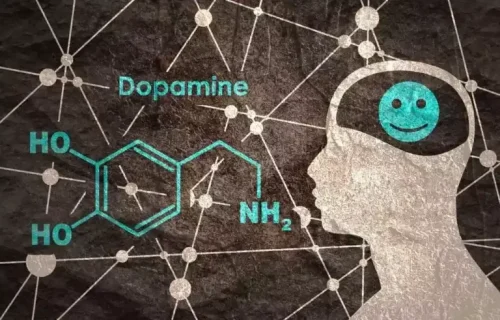
You might have an allergy or intolerance to alcohol—or some of the ingredients used to make the spirit you’re drinking. Signs of an alcohol allergy include skin reactions like hives, difficulty breathing, swelling, nausea, or rapid heartbeat shortly after drinking. If you suspect an allergy, it’s best to consult a healthcare provider for proper diagnosis, which may involve allergy testing and reviewing your medical history. Sulfites, which are preservatives found in wine and beer, can trigger allergic reactions, especially in individuals with asthma or sulfite sensitivity.
Medical Professionals
Histamine, a familiar name to allergy sufferers, emerges as a prominent figure in this narrative. Present in abundance, particularly in red wines, histamine can be the instigator of headaches, flushing, nasal symptoms, gut disturbances or even asthma. Those intolerant to histamine may grapple with these symptoms because their body is unable to break down and eliminate this compound. If you think you might be allergic or sensitive to alcohol, it’s important to talk to your doctor. They can help you Halfway house figure out if you have an actual allergy or sensitivity by running allergy tests or evaluating your symptoms. Be sure to keep track of your symptoms, note what you drink and how it affects you.

Can you suddenly develop an alcohol allergy?
It helps to read the product label, although many ingredients used in the fermentation or distillation process may not be included. Even so, many people with celiac disease or gluten sensitivity report reactions to distilled spirits made from gluten grains. If this is you, you can consider drinking potato-based or grape-based vodka. There are also certain whiskeys made from sorghum (a gluten-free grain).

Health Conditions

If you have a reaction to an alcoholic drink, you may have one of two things—a true allergy or an alcohol intolerance. While both are reactions to alcohol and can sometimes cause similar symptoms, they are different issues. how to tell if allergic to alcohol There is nothing you can do to prevent reactions to alcohol or to ingredients in alcoholic beverages, according to the Healthline website. The only way to avoid a reaction, is to avoid alcohol altogether, or at least the particular substance that causes your reaction. In other cases, people can be intolerant to the chemicals that give alcoholic drinks their flavour and colour, not the alcohol itself. Histamine (found in red wine) and salicylates (found in wine, beer, rum, and sherry), are common examples.
- However, if you’re allergic to an ingredient found in certain alcoholic drinks, dishes which contain that drink are not safe to eat.
- Red wine tends to have higher levels of histamine than white wine or beer.
- True allergic reactions stemming from yeasts are a rare occurrence, dampening the suspicion that this microscopic organism is the chief cause.
- “If you experience painful abdominal cramps and tend to make frequent trips to the bathroom due to diarrhea, then you may be intolerant to alcohol,” explains Dr Moon.
- Factors like exercise and overall health, which affect body mass and metabolism, can also play a role.
- Others get hives, which are red, itchy bumps that appear across your skin.
- In some cases, they might use an oral challenge test to diagnose an allergy or intolerance.
- The symptoms of alcohol intolerance can be quite varied and can manifest differently in individuals.
In very rare cases, reactions to alcohol may be a sign of Hodgkin’s lymphoma. Yes, developing an allergy to alcohol later in life is possible, although rare. This can happen due to changes in the immune system or increased sensitivity to specific ingredients in alcoholic beverages, such as grains, sulfites, or histamines.
Alcohol intolerance symptoms
You will have the option to discuss your results with an independent physician at no extra cost. Consulting with a healthcare provider is essential for an accurate diagnosis. The doctor may refer the person to an allergy specialist for further testing and treatment.
- An alcohol allergy can occur when a person with an alcohol allergy comes into contact with alcohol, which is also known as ethanol.
- Alcohol intolerance is an adverse bodily reaction to the consumption of alcohol.
- For alcohol sensitivity, you don’t necessarily have to give up alcohol, but you should be mindful of your limits.
- When it comes to allergies to any component of an alcoholic drink, you must never consume it.
- You are now leaving thermofisher.com and going to questdiagnostics.com owned and operated by an independent third party.
Find more top doctors on

Some people are intolerant to soy, milk, peanuts, etc. but there are people whose bodies just can’t tolerate alcohol, after a certain https://ecosoberhouse.com/ limit. These compounds are often added to beer and wine to limit the growth of yeast and act as a preservative. Common sulfites include potassium bisulfite or potassium metabisulfite. Sulfur dioxide is another closely related chemical that can trigger reactions in some people. The symptoms of histamine intolerance are similar to an allergic reaction. For example, potential symptoms include red and itchy skin, nasal congestion, shortness of breath, abdominal pain, and diarrhea.
